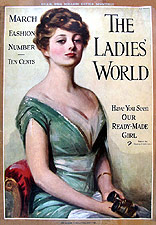I was recently reading a marriage of convenience romance story with erotic content.

The story’s tone was very serious: the couple were initially forced into being together, and there was a lot of complicated angst on the part of the hero. It had lots of complicated conflict. Overall, I liked the story.
However, in the first sex scene, I burst out laughing. Why? A metaphor. It wasn’t that the metaphor was bad. It was actually very evocative. But…one phrase the author used dramatically did not fit the rest of the story’s tone. It was an occasion when word choice made all the difference to my reading experience.
I’m not going to quote the phrase because I don’t want to identify the story. Here are the essential bits, though. While in the hero’s point of view, the writer described the heroine’s clitoris using a culinary metaphor…and not a romantic one, either, but an oddly prosaic and unromantic combination of foods. The hero was engaged in sex with the heroine while he thought this in what was meant to be an emotionally intense scene. The comparison might have been appropriate if true to the hero’s character (though he was never again obsessed with food in the story, so I don’t think that was it, and no further food metaphors were used). It didn’t matter, anyway, because the absurdity of the description stuck out so badly I couldn’t help but notice.
Once I notice a strange metaphor, my sense of the ludicrous takes over, and I can’t take the scene seriously any more. I end up dwelling on that phrase far more than the writer intended. It distracts me.
Sex is silly enough on its own, without the writer’s help. If the reader is distracted, the writer’s lost them.
